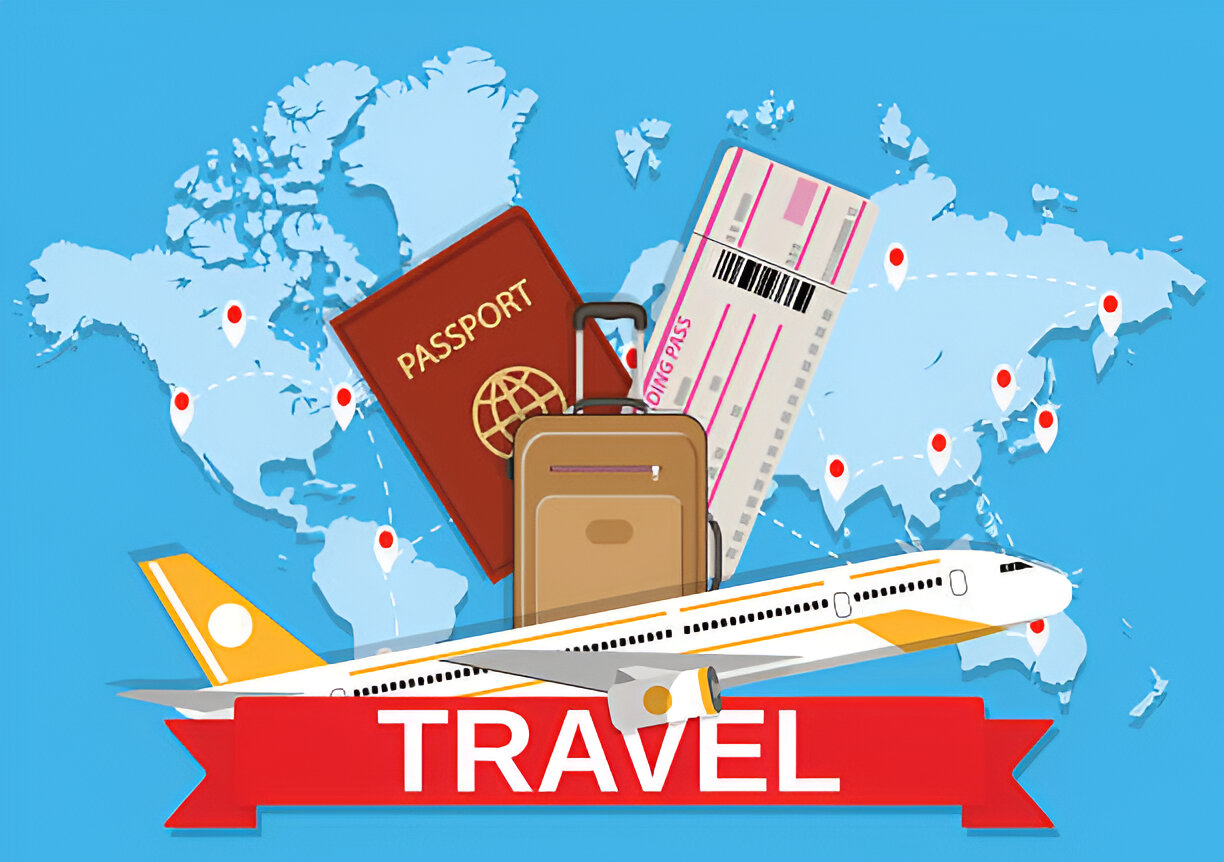“Embrace Freedom: Discover the World While You Work – The Rise of Digital Nomad Tourism.”
Introduction
The rise of digital nomad tourism has transformed the way people approach work and travel, enabling individuals to explore the world while maintaining their professional responsibilities. With advancements in technology and the increasing availability of remote work opportunities, more professionals are embracing a lifestyle that allows them to live and work from anywhere. This trend is characterized by a growing community of individuals who prioritize flexibility, adventure, and cultural experiences over traditional office environments. As a result, destinations around the globe are adapting to cater to this new wave of travelers, offering co-working spaces, reliable internet access, and vibrant communities. This introduction explores the phenomenon of digital nomad tourism and provides insights on how to effectively travel while working, balancing productivity with the desire for exploration.
The Benefits of Embracing Digital Nomadism
The rise of digital nomad tourism has transformed the way individuals approach work and travel, creating a unique lifestyle that blends professional responsibilities with the desire for exploration. Embracing digital nomadism offers numerous benefits that extend beyond mere convenience; it fosters personal growth, enhances productivity, and cultivates a deeper understanding of diverse cultures. As more people recognize the potential of remote work, they are increasingly drawn to the idea of traveling while maintaining their careers, leading to a significant shift in the traditional work-life balance.
One of the most compelling advantages of digital nomadism is the flexibility it provides. Unlike conventional office jobs that require a fixed location, remote work allows individuals to choose their environment, whether it be a bustling café in a foreign city or a serene beachside bungalow. This flexibility not only enables a more enjoyable work experience but also encourages a healthier work-life balance. By breaking free from the constraints of a traditional office, digital nomads can tailor their schedules to accommodate both professional obligations and personal interests, leading to increased job satisfaction and overall well-being.
Moreover, the opportunity to travel while working can significantly enhance creativity and productivity. Exposure to new environments and cultures often inspires fresh ideas and innovative thinking. For instance, a change of scenery can stimulate the mind, allowing individuals to approach problems from different perspectives. Additionally, the diverse experiences gained through travel can enrich one’s professional skill set, making digital nomads more adaptable and resourceful in their careers. This adaptability is particularly valuable in today’s fast-paced work environment, where the ability to pivot and embrace change is essential for success.
In addition to personal and professional growth, digital nomadism fosters a sense of community among like-minded individuals. As more people adopt this lifestyle, a global network of digital nomads has emerged, providing opportunities for collaboration, networking, and support. Co-working spaces, meetups, and online forums have become vital resources for those navigating the challenges of remote work while traveling. This sense of belonging can alleviate feelings of isolation that often accompany remote work, creating a supportive environment where individuals can share experiences, exchange ideas, and build lasting relationships.
Furthermore, embracing digital nomadism can lead to significant financial benefits. Many digital nomads choose to live in countries with a lower cost of living, allowing them to stretch their budgets further while enjoying a higher quality of life. This financial freedom can enable individuals to invest in experiences rather than material possessions, prioritizing travel and personal development over traditional consumerism. As a result, digital nomads often find themselves living richer, more fulfilling lives, filled with adventures and opportunities for growth.
In conclusion, the benefits of embracing digital nomadism are manifold, encompassing flexibility, enhanced creativity, community building, and financial advantages. As the world continues to evolve in response to technological advancements and changing work dynamics, the allure of traveling while working is likely to grow. By adopting this lifestyle, individuals not only enrich their own lives but also contribute to a broader cultural exchange that fosters understanding and collaboration across borders. Ultimately, the rise of digital nomad tourism represents a significant shift in how we perceive work and leisure, encouraging a more integrated approach to living and working in an increasingly interconnected world.
Top Destinations for Digital Nomad Tourism
The rise of digital nomad tourism has transformed the way individuals approach work and travel, allowing them to explore the world while maintaining their professional responsibilities. As technology continues to advance, more people are embracing the flexibility of remote work, leading to an increasing demand for destinations that cater to this lifestyle. Various cities around the globe have emerged as top choices for digital nomads, each offering unique advantages that enhance both productivity and leisure.
One of the most popular destinations for digital nomads is Bali, Indonesia. Known for its stunning landscapes, vibrant culture, and affordable cost of living, Bali has become a haven for remote workers. The island boasts numerous coworking spaces equipped with high-speed internet, allowing professionals to work efficiently while enjoying the serene environment. Additionally, the rich cultural experiences and opportunities for outdoor activities, such as surfing and yoga, provide a perfect balance between work and relaxation. As a result, Bali has cultivated a thriving community of like-minded individuals, fostering networking opportunities and collaboration among digital nomads.
Similarly, Lisbon, Portugal, has gained significant traction as a prime location for remote workers. The city’s mild climate, rich history, and vibrant arts scene make it an attractive option for those seeking inspiration while working. Lisbon is home to a plethora of coworking spaces and cafes that cater to the needs of digital nomads, providing conducive environments for productivity. Furthermore, the city’s affordable living costs compared to other Western European capitals make it an appealing choice for long-term stays. The welcoming atmosphere and diverse expat community also contribute to Lisbon’s reputation as a top destination for digital nomad tourism.
In addition to Bali and Lisbon, Mexico City has emerged as a noteworthy contender in the digital nomad landscape. With its rich cultural heritage, diverse culinary scene, and bustling urban life, Mexico City offers a unique blend of experiences for remote workers. The city features numerous coworking spaces and cafes with reliable internet, making it easy for professionals to stay connected. Moreover, the relatively low cost of living allows digital nomads to enjoy a high quality of life while pursuing their careers. The vibrant social scene and numerous cultural events also provide ample opportunities for networking and personal growth.
Another destination that has captured the attention of digital nomads is Chiang Mai, Thailand. Renowned for its affordability and laid-back atmosphere, Chiang Mai has become a popular base for remote workers seeking a balance between work and leisure. The city is dotted with coworking spaces and cafes that cater specifically to the needs of digital nomads, ensuring that they have access to reliable internet and a conducive work environment. Additionally, the rich cultural experiences, stunning temples, and lush landscapes offer ample opportunities for exploration and relaxation after a productive workday.
As the trend of digital nomad tourism continues to grow, cities around the world are adapting to meet the needs of this unique demographic. From the tropical beaches of Bali to the historic streets of Lisbon, the options for remote workers are diverse and plentiful. Each destination offers its own distinct advantages, allowing digital nomads to find the perfect balance between work and travel. Ultimately, the rise of digital nomad tourism not only enriches the lives of individuals but also contributes to the local economies and cultures of the places they choose to call home, even if only temporarily.
Essential Tools for Working Remotely While Traveling
The rise of digital nomad tourism has transformed the way individuals approach work and travel, allowing them to explore new destinations while maintaining their professional responsibilities. As this trend continues to gain momentum, it becomes increasingly important for remote workers to equip themselves with essential tools that facilitate productivity and connectivity on the go. By leveraging technology and adopting effective strategies, digital nomads can seamlessly blend their work and travel experiences.
One of the most critical tools for remote work is a reliable laptop. A lightweight, high-performance device is essential for managing tasks efficiently, whether it involves writing reports, attending virtual meetings, or conducting research. Additionally, investing in a portable charger or power bank ensures that the laptop remains operational during long travel days or in locations where power sources may be limited. This combination of a dependable laptop and supplementary power solutions allows digital nomads to work from virtually anywhere, enhancing their flexibility.
In tandem with a reliable laptop, a stable internet connection is paramount for remote work. Many digital nomads rely on mobile hotspots or portable Wi-Fi devices to ensure consistent connectivity. These tools enable them to access the internet in areas where traditional Wi-Fi may be unreliable or unavailable. Furthermore, utilizing local SIM cards can provide affordable data plans, allowing for seamless communication and access to online resources. By prioritizing internet connectivity, digital nomads can maintain their productivity and stay connected with colleagues and clients.
Another essential tool for remote workers is project management software. Platforms such as Trello, Asana, or Slack facilitate collaboration and organization, enabling teams to stay aligned regardless of their physical locations. These tools allow digital nomads to manage tasks, set deadlines, and communicate effectively with team members, ensuring that projects progress smoothly. By utilizing project management software, remote workers can maintain a sense of structure and accountability, which is crucial when balancing work with travel.
In addition to software solutions, digital nomads should consider investing in noise-canceling headphones. These devices can significantly enhance focus and concentration, particularly in bustling environments such as cafes or co-working spaces. By minimizing distractions, noise-canceling headphones allow remote workers to immerse themselves in their tasks, leading to increased productivity. Moreover, they can also be beneficial for virtual meetings, ensuring clear audio quality and reducing background noise.
Furthermore, maintaining a healthy work-life balance is essential for digital nomads. To achieve this, time management tools such as calendars and scheduling apps can be invaluable. By setting specific work hours and adhering to a structured routine, remote workers can carve out time for exploration and leisure activities. This balance not only enhances overall well-being but also fosters creativity and motivation, ultimately benefiting their professional output.
Lastly, it is crucial for digital nomads to prioritize cybersecurity while working remotely. Utilizing a virtual private network (VPN) can protect sensitive information and ensure secure internet connections, particularly when accessing public Wi-Fi networks. By taking these precautions, remote workers can safeguard their data and maintain their privacy, allowing them to focus on their work without unnecessary concerns.
In conclusion, the rise of digital nomad tourism presents exciting opportunities for individuals seeking to combine work and travel. By equipping themselves with essential tools such as reliable laptops, stable internet connections, project management software, noise-canceling headphones, time management apps, and cybersecurity measures, remote workers can navigate the challenges of working while traveling. Embracing these resources not only enhances productivity but also enriches the overall experience of being a digital nomad, allowing for a fulfilling and dynamic lifestyle.
Q&A
1. **What is digital nomad tourism?**
Digital nomad tourism refers to a lifestyle where individuals leverage technology to work remotely while traveling to different locations, often seeking destinations that offer a conducive environment for both work and leisure.
2. **What are some essential tools for digital nomads?**
Essential tools for digital nomads include a reliable laptop, portable Wi-Fi devices, productivity software (like project management and communication tools), and cloud storage services to ensure access to files from anywhere.
3. **How can one balance work and travel as a digital nomad?**
To balance work and travel, digital nomads should establish a flexible schedule, set clear work hours, choose accommodations with good workspaces, and prioritize destinations with reliable internet access.
Conclusion
The rise of digital nomad tourism reflects a significant shift in work culture, driven by advancements in technology and a growing desire for flexibility. As more professionals embrace remote work, they seek to combine their careers with travel, leading to the emergence of a vibrant community that values experiences over traditional office settings. To successfully travel while working, individuals should prioritize reliable internet access, establish a routine that balances work and exploration, and choose destinations that cater to digital nomads with co-working spaces and supportive infrastructure. Ultimately, this trend not only enhances personal fulfillment but also contributes to local economies and fosters cultural exchange.




